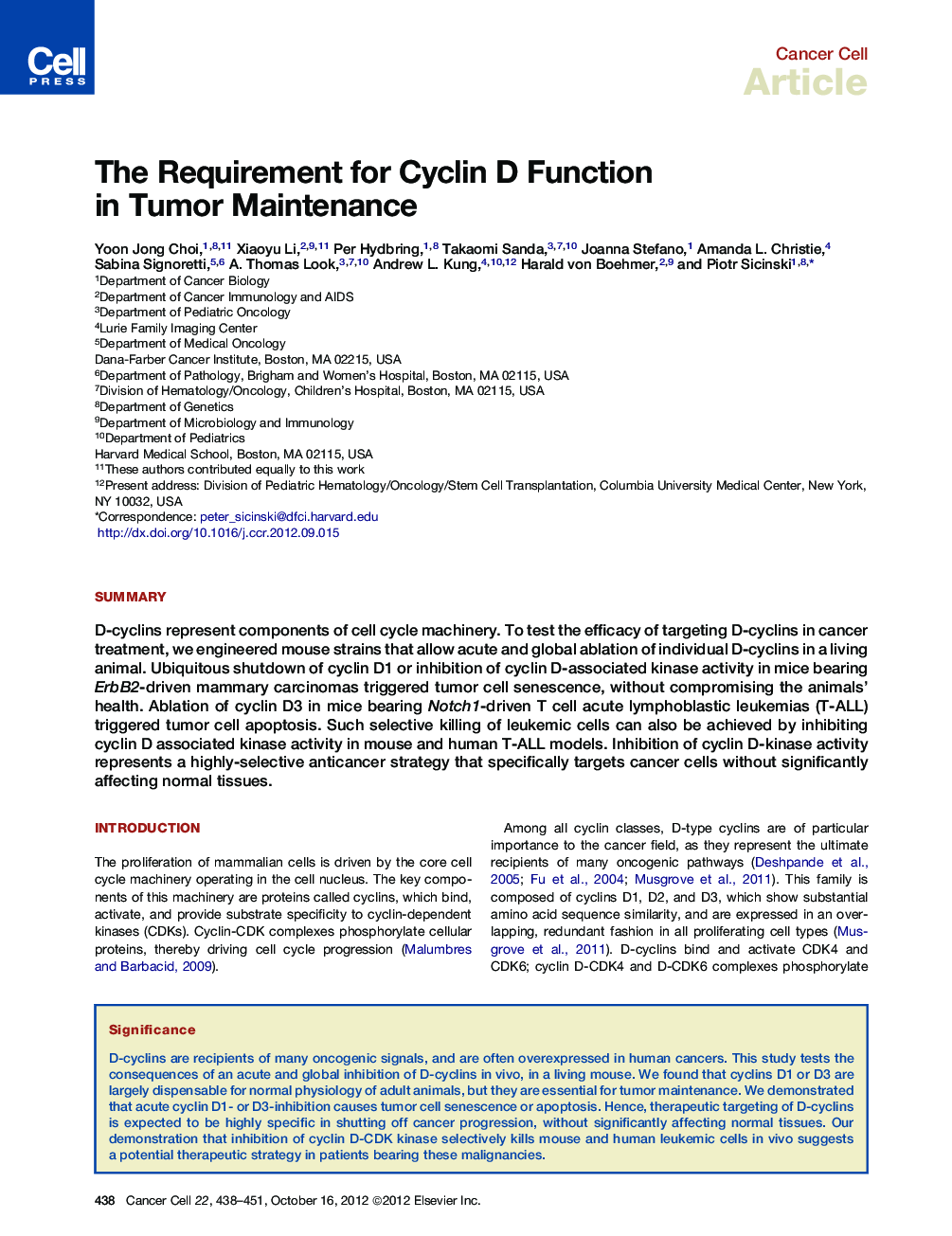| Article ID | Journal | Published Year | Pages | File Type |
|---|---|---|---|---|
| 2107107 | Cancer Cell | 2012 | 14 Pages |
SummaryD-cyclins represent components of cell cycle machinery. To test the efficacy of targeting D-cyclins in cancer treatment, we engineered mouse strains that allow acute and global ablation of individual D-cyclins in a living animal. Ubiquitous shutdown of cyclin D1 or inhibition of cyclin D-associated kinase activity in mice bearing ErbB2-driven mammary carcinomas triggered tumor cell senescence, without compromising the animals’ health. Ablation of cyclin D3 in mice bearing Notch1-driven T cell acute lymphoblastic leukemias (T-ALL) triggered tumor cell apoptosis. Such selective killing of leukemic cells can also be achieved by inhibiting cyclin D associated kinase activity in mouse and human T-ALL models. Inhibition of cyclin D-kinase activity represents a highly-selective anticancer strategy that specifically targets cancer cells without significantly affecting normal tissues.
► Acute and global shutdown of cyclins D1 or D3 does not compromise animals’ health ► Acute cyclin D1 ablation in mice with breast cancers causes tumor cell senescence ► Ablation of cyclin D3 selectively kills leukemic cells in a mouse model of T-ALL ► Inhibition of cyclin D-CDK kinase causes apoptosis of human T-ALL cells in vivo
